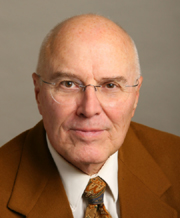Abstract
"Organizations as action generators," 1983
Famous William H. Starbuck Quotes
Richard Cyert, James G. March, William H. Starbuck. (1961) "Two experiments on bias and conflict in organisational estimation," Management Science, 254–64; Abstract
Source: Learning by knowledge‐intensive firms," 1992, p. 716
Context: In deciding whether a firm is knowledge-intensive, one ought to weigh its emphasis on esoteric expertise instead of widely shared knowledge. Everybody has knowledge, most of it widely shared, but some idiosyncratic and personal. If one defines knowledge broadly to encompass what everybody knows, every firm can appear knowledge-intensive. One loses the value of focusing on a special category of firms. Similarly, every firm has some unusual expertise. To make the knowledge-intensive firm a useful category, one has to require that exceptional expertise make important contributions. One should not label a firm as knowledge-intensive unless exceptional and valuable expertise dominates commonplace knowledge.
Source: Learning by knowledge‐intensive firms," 1992, p. 717
Source: Learning by knowledge‐intensive firms," 1992, p. 715
Source: "The Origins of Organizational Theory," 2005, p. 149-150
Source: "The Origins of Organizational Theory," 2005, p. 143
William H. Starbuck and Philippe Baumard (2009). "The seeds, blossoming, and scant yield of organization theory," in: Jacques Rojot et. al (eds.) Comportement organisationnel - Volume 3 De Boeck Supérieur. p. 15
